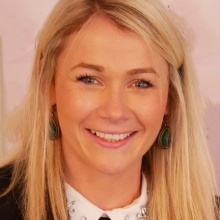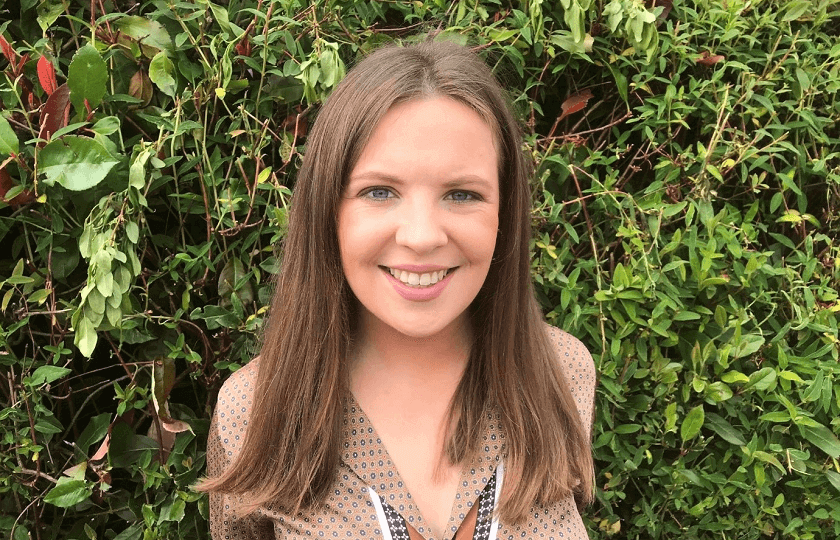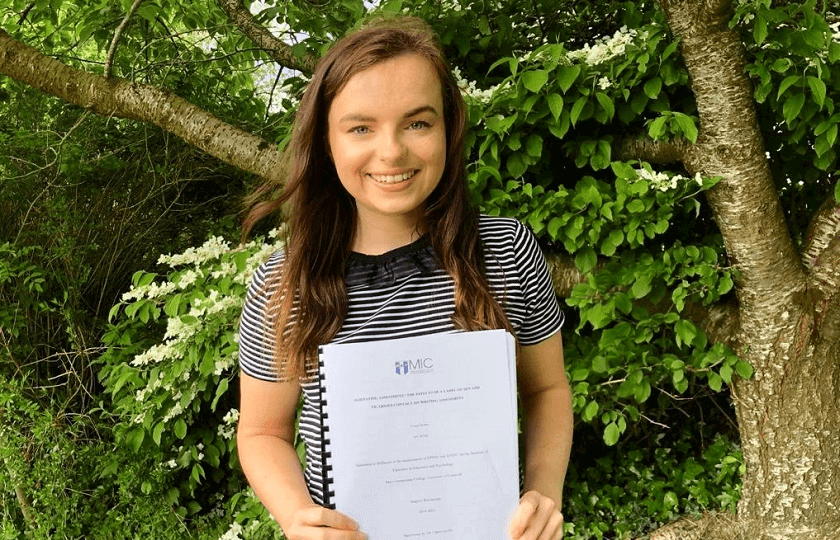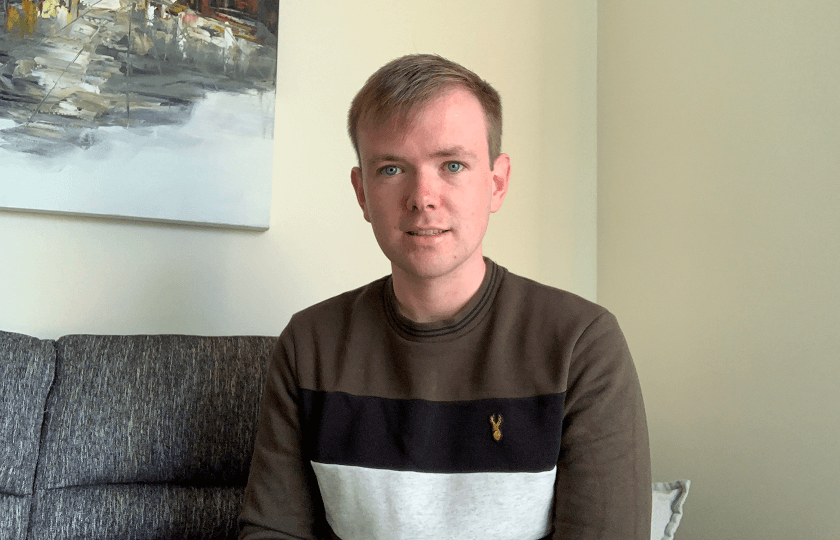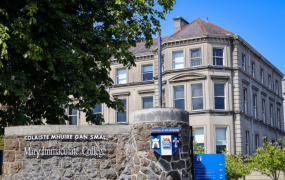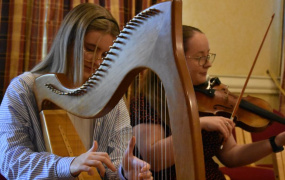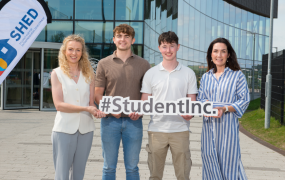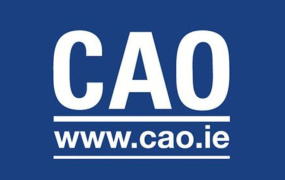Educational Psychology, Inclusive & Special Education
About
The Department of Educational Psychology, Inclusive & Special Education (EPISE) in Mary Immaculate College of Education is comprised of 11 full-time members of faculty qualified in educational psychology or inclusive/special education.
The faculty serve students in programmes extending from Doctoral level through Level 4 on the QQI system. EPISE staff also supervise student research for doctoral and masters' degrees, and final year projects/undergraduate dissertations.
They also conduct research and publish in national and international journals. There are multiple well-established community educational links supported by faculty members in the department.
Subject Overview
Undergraduate
The modules below are undertaken by those studying on the Bachelor of Education programme, as delivered by lecturers in the EPISE department.
This module develops preservice teachers’ understanding of children and their development, with an emphasis on the child as learner. It enables students to challenge their experiences of learning and their conceptions of teaching and to provide children with developmentally appropriate learning experiences. It helps students to understand children’s developmental progression by focusing on the theoretical rationale, frameworks and theories that underpin classroom practices.
This integrated module contextualises learning within behavioural, cognitive and social learning theory. Learning is analysed from a psychological perspective, drawing particularly from the fields of cognitive psychology and neuroscience. The module inducts student teachers into the practice of teaching and reflection through educational psychology, microteaching and educational methodology, paying particular attention to the need for detailed lesson planning and the development of appropriate classroom management understandings and strategies.
This module presents the child with special educational needs (SEN) as being first and foremost a child and explores how the classroom teacher can use developmentally appropriate evidence‐based practices to support children with SEN in the inclusive classroom. This is the first of two discrete modules in Inclusive Education for Children with SEN in the B.Ed. Programme.
This integrated module takes a proactive approach to classroom management by encouraging students to consider the factors that create an environment in which positive relationships can flourish and optimal relationships can occur. Student teachers are encouraged to develop an understanding of educational context, environmental competence, an awareness of norms and expectations for behaviour and how to establish a climate for positive relationships.
This module integrates the theory and practice of educational assessment. Students critique a broad range of assessment procedures and tools and have ‘hands‐on’ experience of application, interpretation and reporting of assessment data. Students explore different methods for communicating assessment information to parents and have an opportunity to practice these skills. Students critically explore the ways in which assessment is used in educational decision making, Irish legislative and policy context and consider the centrality of assessment to effective teaching.
This is the second of two discrete modules in Inclusive Education for Children with Special Educational Needs (SEN) in the B Ed Programme. The focus of this module, which is situated within a holistic B Ed programme comprising discreet and permeated modules, is on matching educationally relevant characteristics, strengths and needs to evidence‐based key educational interventions for children with SEN. There is also an emphasis on individualised planning with the identification and evaluation of learning targets for children with SEN.
The modules below are undertaken by those studying on the B Ed in Education and Psychology programme only, as delivered by lecturers in the EPISE department.
This module aims to develop students’ understanding of children and their development, with an emphasis on the child as learner. This module explores the cognitive, social and emotional development of children from early childhood to early adolescence.
The module aims to provide an introduction to the area of special educational needs (SEN)/disability from an educational and a psychological perspective. The module presents the child with additional learning needs and/or SEN as being first and foremost a child whose educational needs are explored within the Irish Legislative and Policy context through the use of psychological frameworks. Inclusion, models of disability and students’ personal attitudes, values and beliefs about diversity and equality in education are examined. An examination of psychological and educational research address the implications for inclusion.
This integrated module takes a proactive approach to behaviour management by encouraging students to consider the factors that create an environment in which positive behaviour can flourish and optimal relationships can occur. Students examine a number of psychological perspectives and are encouraged to develop an understanding of context, environmental competence, an awareness of norms and expectations for behaviour and how to establish a climate for positive behaviour and positive relationships.
This module integrates the theory and practice of psychological and educational assessment. Students critique a broad range of assessment procedures and tools and have ‘hands‐ on’ experience of application, interpretation and reporting of assessment data. Students explore different methods for communicating assessment information to parents and have an opportunity to practice these skills. Students critically explore the ways in which assessment is used in educational decision making, Irish legislative and policy context and consider the centrality of assessment to effective educational practice.
This module aims to enable students to prepare to undertake ethically appropriate empirical research in an area of Psychology. The module aims to develop, enhance and complement the students’ existing Research Design and Methodology skill-set. The focus is on encouraging students to apply their knowledge of quantitative and qualitative design to research questions in an ethical context. Students design viable research projects, exploring the development and evaluation of data collection instruments and research designs with a particular focus on their own individual research questions. Students will explore ethical considerations when conducting research in the field, examining pertinent questions for their proposed research designs.
This module provides an opportunity for students to conceptualise, design and carry out a final year dissertation project bridging theory and practice across classrooms, schools, communities and broader society or through critical engagement with historical, sociological, philosophical and psychological epistemologies. Students have an opportunity to carry out a systematic, relevant, and robust literature review and inquiry and write up findings following standard scholarly conventions.
This module aims to offer insight into the unique contribution of educational psychology and the ways in which psychology can be applied in educational contexts. Topics are presented to students in ways that encourage students to build upon existing levels of knowledge, seeking to integrate information from core subject areas during the previous three years of their degree: a biopsychosocial approach to inclusive education for children with SEN, biological, cognitive, developmental & educational psychology, personality and individual differences and social psychology.
This module considers major issues and theoretical approaches that apply to development across the lifespan. It seeks to review and build on prior understanding of child development and extend into the periods of adolescence and adulthood. At each stage, physical, cognitive, emotional and social development are considered. A study of the research methods used within developmental psychology are integrated into the course. The course considers development as a continuous process, which has universal patterns and individual differences.
This module provides students with an opportunity to study the literature on universal motivation, inspired by a wide range of psychological perspectives. Students consider what universally motivates human cognition and behaviour and are introduced to methods and measures applied in the field of research on human motivation. Finally, the module interogrates applications of theory and findings on human motivation to applied settings, specifically educational settings.
The modules below currently comprises the specialism in Special Education that can be undertaken by those studying on the Bachelor of Education programme only. The specialism requires a Final Year Project (double-weighted).
The focus of this module is on teacher planning for working with children with special educational needs and learning difficulties. General strategies for building new skill repertoires are examined including task analysis, the use of targeted visual supports, ICT and errorless learning. Strategies for developing maintenance and generalisation of skills are also considered. The module presents strategies for teaching and evaluating social and emotional skills to children with learning difficulties and special educational needs.
This module will provide instruction in Mathematics, Language and Literacy specific to populations of the primary school who have learning difficulties and special educational needs. It will outline the impact of various types of learning difficulties and special educational needs on the development of mathematics, language and literacy in the primary school. Assessment strategies and instructional evidence-based practices for each of the three areas will be presented.
The module will present a framework for understanding and managing behaviour of children with Special Educational Needs (SEN) in the primary school using a continuum of support.
This six credit module provides an opportunity for students to critically examine evidence-based research on parent-professional partnership in order to support the learning and wellbeing of children with SEN. Opportunities are provided to explore, reflect and critically evaluate students own values, beliefs and, in particular, assumptions as they impact on partnerships with parents of children with SEN and other professionals. Students engage with parents and other professionals with a view to benefiting from their first-hand experiences of children with special educational needs. Becoming a reflective teacher is a central theme throughout this module, as is teacher as researcher.
Postgraduate
The modules below can be taken by those studying on the Professional Master of Education (PME) programme.
This three credit module presents the child with special educational needs (SEN) as being first and foremost a child and explores how the classroom teacher can use developmentally appropriate evidence-based practices to support children with SEN in the inclusive classroom. This is the first of two discreet modules in Inclusive Education for Children with SEN in the B Ed programme. These discreet modules form part of a dual approach (discreet modules and permeated modules) to enable children with SEN receive an appropriate inclusive needs-based education.
This is the second of two discrete modules in Inclusive Education for Children with Special Educational Needs (SEN) in the B Ed Programme. The focus of this module, which is situated within a holistic B Ed programme comprising discreet and permeated modules, is on matching educationally relevant characteristics, strengths and needs to evidence‐based key educational interventions for children with SEN. There is also an emphasis on individualised planning with the identification and evaluation of learning targets for children with SEN.
This module provides information and skill development in inclusive theory and practice and special education for students in the Professional Masters in Education programme. The module provides instruction in the development, use and evaluation of various strategies for teaching curricular content to children in primary schools who have learning difficulties or special educational needs. The focus of this module will be on teacher planning for working with children with special educational needs, including those with Attention Deficit Hyperactivity Disorder, Social, Emotional and Behavioural Disorders, Specific Learning Disability, Mild General Learning Disabilities and Autism Spectrum Disorders in general education classrooms.
‘Child Development and Pedagogy' is an integrated module between Developmental Psychology and Educational Methodology, aiming to challenge graduates’ previous experiences of learning and conceptions of teaching. This module aims to examine and develop student teachers’ understanding of children and their development, with an emphasis on the child as learner. It also explores the cognitive, social and emotional development of children from early childhood to early adolescence. It critically examines theories of learning and development and reflect on the role of the teacher in understanding and promoting positive child development and learning. In preparation for the analysis of classroom practice and engagement in teaching practice, a range of core Educational Methodology issues of effective teaching are also explored and evaluated.
This module aims to introduce and explain key ideas, themes and concepts in educational psychology and assessment. The course is subdivided into a number of strands. The first strand briefly explores further social, emotional and behavioural issues. This strand builds on PME602, ‘Child Development and Pedagogy’ from semester 1 and will emphasise developing graduates’ reflective practices, evaluative and thinking skills and in connecting theory and practice. The second strand explores individual variations and motivation theory. The third strand explores assessment for and of learning and aims to equip graduates with an understanding of and competence in assessment, measurement and evaluation. The course is designed to help graduates develop their own awareness of the controversies, complexities and debates in this area, to critically evaluate theoretical models and conflicting perspectives and ultimately to develop a personal, considered view which will inform classroom practice.
The department offers a Doctorate in Educational & Child Psychology.
The DECPsy programme is a professional doctorate with a nominal value of 270 ECTs. The programme provides a connected curriculum that integrates academic knowledge, research and professional practice. Taught modules (outlined below) are delivered over the first two years of the programme. One day per week is typically assigned to study/research. There are research and placement elements to the programme also (outlined below).
Trainees are introduced to the field of educational psychology, the historical context and changing face of educational psychology, and the variety of roles undertaken by EPs in diverse contexts.
Trainees develop a comprehensive knowledge of a broad range of special educational needs.
Trainees are introduced to the logic, design, and methods of psychological research. Topics include fundamental ontological and epistemological issues in the generation of reliable knowledge, the structure of scientific theories, the advantages and disadvantages of different research designs for making causal inferences, and methods for the collection and analysis of quantitative and qualitative data.
Trainees examine theories of emotional, personal and social development in infancy, childhood and adolescence and consider their application to practice.
Span the two semesters in Year 1. Part 1 provides students with a critical understanding of key topics and issues in psychological research on advanced cognition and learning. Part 2 explores how psychological research on cognition and learning is applied to practice.
Trainees are introduced to the use of assessment tools in a non-biased, reliable and valid manner. Students are taught the key principles of conducting psycho-educational assessments and are presented with an advanced understanding of the technical and methodological principles of testing.
Trainees engage with the ethical and professional responsibilities of engaging in the work of an educational psychologist.
Trainees develop the necessary competencies to enable them to integrate empirical evidence with professional expertise in meeting the mental health needs of children and adolescents in ‘Child Psychology’ settings.
Trainees become familiar with key approaches to counselling and therapeutic intervention when working with children, their families and other professionals. Trainees also develop presentation skills in order to engage effectively in training and development work as an EP.
Trainees develop skills in a range of consultation models that enable them to facilitate change at individual and group levels.
Trainees review current research and practice in the application of organisational psychology to a range of organisations and settings. A number of perspectives relevant to the development of the role of educational psychologists in assisting with the processes of school improvement and organisational change are offered.
For the award of Doctorate, the research thesis must make an original contribution to knowledge and contain material of a standard and form appropriate for peer-reviewed publication. Trainees develop their knowledge and understanding of the nature of educational research, showing in depth understanding of the range of research orientations and methods used in educational psychology research. Trainees are supported in this process through regular supervision and the provision of advanced research methods workshops over the three years. Trainees conduct a thorough literature review in their area of interest in Year 1. In Year 2, trainees focus on obtaining ethical approval and data collection. In Year 3 the emphasis is on data analysis and thesis write up.
Professional placements, totalling 300 days, are organised in a variety of settings. The professional placements provide extensive opportunities for the development of a wide range of professional roles and competencies. Detailed placement handbooks are provided to trainees in advance of each placement. Trainees typically attend placements for 3-4 days per week. Where possible, trainees are placed close to their home base. In addition to professional placements, trainees undertake a 20 day School Placement in Semester 1. This placement provides opportunities for trainees to carry out shadowing and observation in a variety of educational contexts.
The department offers a Graduate Diploma/Master's in Special Education.
There are 10 modules in this programme (outlined below):
This module provides an introduction to special education, philosophy, practice and provision internationally and within the Irish context. The focus will be on the Irish legislative framework supporting special education provision, models of provision both historic and current, and the interrogation of inclusive education in schools.
This module explores children’s cognitive, social, physical, play, emotional and behavioural development and the influences affecting this development. Academic and non- academic influences on child development will be examined.
This module will outline the impact of various types of learning difficulties and special educational needs on the development of communication, language and literacy for pupils in the primary, special, and postprimary school.
This module will provide an introduction to using ICT to support teaching and learning for pupils with special educational needs. Using a skills-based approach, participant teachers will learn how to use content rich and open framework software to meet the individual learning needs of pupils with SEN.
This module will emphasise a collaborative, pupil-centred, inclusive and holistic approach to assessment, planning and reviewing pupils’ progress. Formal and informal assessment approaches will be examined to facilitate the identification of pupils’ strengths, needs and priority needs.
This module will address the theory, research and practice regarding curricular inclusion for learners with special educational needs. It will focus on the individual strengths and needs of these learners and the corresponding need for teachers to attend to learning styles using multi-sensory approaches and the provision of appropriate visual supports including ICT.
This module will facilitate students to develop an understanding of a range of special educational needs. Students will develop further insight into one particular disability through applied research i.e. case study. Appropriate teaching methodologies, strategies and resources will be explored.
This module will provide teachers with in-depth knowledge of the theory, research, policy and practice in the development of communication, language and literacy for pupils in the primary, special, and post-primary school. The module will familiarise teachers with a wide range of teaching strategies.
This module will further enhance knowledge and skills for differentiating content, process and product to support the inclusion of pupils with learning difficulties or special educational needs. The focus here will be on collaborative practices within schools, which enhance the likelihood that access to the general curriculum will be successful for learners with SEN.
This module will emphasise a collaborative, pupil-centred, inclusive and holistic approach to assessment, planning and reviewing pupils’ progress. Formal and informal assessment approaches will be examined to facilitate the identification of pupils’ strengths, needs and priority needs.
The department offers a Graduate Certificate in Autism Studies.
There are five modules in this certificate.
The aim of this module is to provide students with a comprehensive overview of autism.
The aim of this module is to provide students with the theory and practical application of the use of structure and visual teaching strategies for children and young people with autism across learning environments.
The aim of this module is to provide participants with an overview of the relationship between autism and anxiety.
This module will look at challenging behaviour, not as a core feature of autism, but as an impediment to activities and a source of increased stress levels among parents, carers and teachers.
The aim of this module is to provide students with understanding of how the core impairments of autism including sensory processing difficulties interface with learning environments for individuals with autism.
Lifelong Learning
The department offers a Certificate in General Learning and Personal Development (CGLPD)
This programme is designed to enhance the holistic development of adults with an intellectual disability, in an inclusive third level setting. The certificate is composed of the following Level 4 QQI minor awards:
The purpose of this award is to equip the learner with the knowledge, skill and competence to develop their awareness of how visual works of art are developed and created.
The purpose of this award is to equip the learner with the knowledge, skill and competence to enhance their cultural awareness and socio-cultural competence by studying the culture and customs of another country or community.
The purpose of this award is to equip the learner with the relevant knowledge, skill and competence to use problem solving skills in everyday life and or in the workplace while under supervision.
The purpose of this award is to equip the learner with the knowledge, skill and competence to use a range of personal and interpersonal skills in a variety of personal, civic and vocational contexts, operating with some autonomy while under direction.
The purpose of this award is to equip the learner with the relevant knowledge, skill and competence to act as an effective member of a team, completing team-related tasks under instruction, while taking responsibility own activities and actions.
The purpose of this award is to equip the learner with the relevant knowledge, skill and competence to communicate verbally and non-verbally in routine everyday tasks, and in work related tasks while under supervision.
The purpose of this award is to equip the learner with the knowledge, skill and competence to use applications in information technology. It is designed to develop skills in data entry, word processing, and using the internet.
The purpose of this award is to equip the learner with the relevant knowledge, skill and competence to participate in the workplace for a limited time and to carry out work-related tasks while under supervision.
The purpose of this award is to equip the learner with the knowledge, skill and competence to recognise situations where mathematics can be used meaningfully in daily life, apply and transfer mathematical processes and concepts appropriate to the situation, interpret and draw conclusions from activity, and communicate conclusions appropriately to others.
Staff
Projects & Research
Projects
Dr Margaret Egan
Work in progress: Collaborative project to develop a resource handbook for Early Years’ educators, teachers, student teachers, Speech and Language Therapists (SLTS) and trainee SLTs. Working title: Identifying and Supporting Children with Speech, Language and Communication Needs. Limerick: Curriculum Development Unit, MIC.
Dr. Johanna Fitzgerald
Chairperson/ coordinator Limerick SENCO Forum, a professional learning network for post-primary SENCOs in the Munster region. Three network meetings held annually.
Ongoing (2017) collaborative JMB/ AsIAM initiative to develop school resources to promote inclusion of learners with ASD in mainstream post-primary schools.
Ongoing (2017) collaboration with Limerick and Clare ETB schools: implementation of ‘Provision Mapping as a Response to Strategic Leadership and Coordination of Special Education provision’.
Work in progress: developing a resource handbook for principals and SENCOs in post-primary schools in Ireland entitled ‘Leading Learning for Students with Special Educational Needs at the Post-Primary Level: A Handbook for Principals and SENCOs’ (working title). Curriculum Development Unit, MIC.
Collaborative research project with Faculty members from the Department of Allied Health, UL entitled ‘Incorporating Inter-Professional Education in Individual Education Planning for Students with Special Educational Needs: student speech and language therapy students and teachers learning together.’
Dr. Suzanne Parkinson
‘Mise Mar Fhoghlaimeoir’ is funded by An Chomhairle um Oideachas Gaeltachta & Gaelscolaíocht.
2016: ‘My Learner Identity' is a unique new resource designed to nurture the ‘Who’ and ‘How’ of learning from preschool through to sixth class. The series supports children in becoming learners, in articulating perspectives of themselves as learners and their worldview, their experiences of school and on the educative process. The series addresses the ‘how’ of learning and encourages learners to reflect and develop key learner dispositions associated with effective learning.

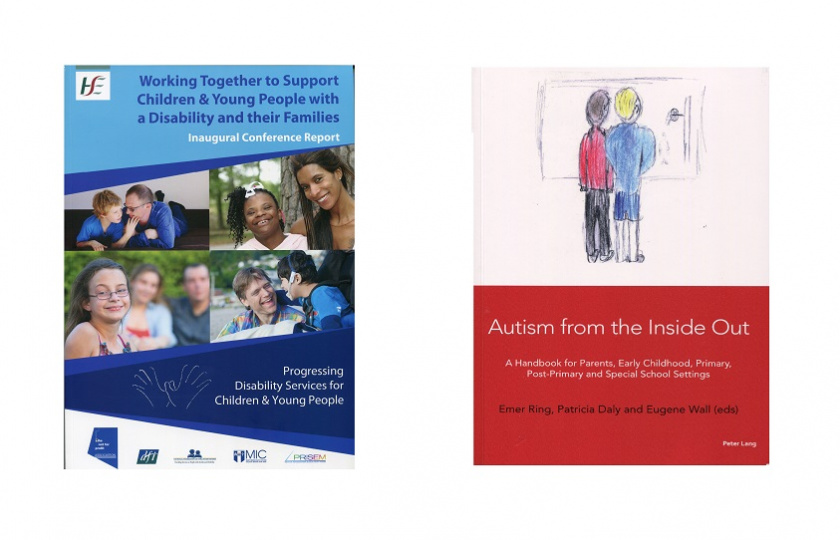
Research
Working Together to Support Children & Young People with a Disability and their Families contains key contributions from the following faculty in EPISE:
- Dr Therese Brophy
- Siobhan O’Sullivan
- Carol Slattery (Trainee Educational Psychologist)
- Dr Margaret Farrelly
- Anne O’Byrne
Autism from the Inside Out includes chapter contributions from following staff and students in the EPISE Department:
- Dr Margaret Egan
- Sarah Feeney (Doctoral Student, EPISE)
- Dr Claire Griffin
- Dr Michele Dunleavy
- Anne O’Byrne
- Dr Patricia Daly
Useful Information
Departmental Assistantships - applications for 2025 are now open.
The Department of Educational Psychology, Inclusive and Special Education, Mary Immaculate College, is now accepting applications from current and potential research MA/PhD students for a funded Departmental Assistantship beginning in September 2025.
Further information about the Departmental Assistantship is available here.
Departmental Assistantships application form in available to download here. (word)
Email: Dr. Trevor O'Brien, Trevor.OBrien@mic.ul.ie
Achievements of EPISE Students & Graduates
Student Awards and Research Dissemination B Ed in Education & Psychology Programme
Highly commended: All Ireland Psychology Student Congress 2024
Ryan-Purcell, S. & Higgins, N. (2024). The Troublesome P's. Investigating the Relationship Between Perfectionism and Academic Procrastination. Do Conscientiousness and Achievement Goal-Orientation play a role.
Highly commended: All Ireland Psychology Student Congress 2022: Oral Presentation
Roe, D. & Ambrose, L. (2022). The Mind Matters: Primary School Teachers' Perspectives on Supporting Primary School Children's Mental Health in Mainstream Schools
Highly commended: All Ireland Psychology Student Congress 2022: Poster Presentation
Reister, C. & Keane, L. (2022). The Role of College Belongingness in Students' Psychological Adjustment: A Comparative Study.
All Ireland Psychology Student Congress 2021 Undergraduate Winner
Cronin, C. & Parkinson, S. (2021). The Nature of Nurture: A Systematic Review of the Rationale for Nurture Group Interventions and Methodologies Which Underpin Best Practice.
All Ireland Psychology Student Congress 2021 Poster Winner
Twomey, S. & McLoughlin, A. (2021). Assessment of reading skills: An investigation into the impact of feedback on intrinsic motivation, and how this effect is mediated by ability self-concept.
Overall Prize for Undergraduate Oral Presentation: Phelan, L. & Higgins, N. (2020). I Get Knocked Down, but I Get Up Again: Exploring Sports Injury-Related Growth in GAA Athletes
Highly commended: Howe, C. & Griffin, C. (2020). Alienating Assessment: The Effects of a Label of Special Educational Needs and Vicarious Contact on Writing Assessment
Overall Prize for Undergraduate Oral Presentation: O’Sullivan, K. & Scully, M. (2019). Lack of diversity in student teacher’s socio-economic status: does it really matter? More about the 2019 Global Undergraduate Awards.
Highly commended:
- Cashman, L. & Scully, M (2019). Charity begins with your in-group: Irish student teachers’ accounts of national and international helping.
- Earley, S. & Ambrose, L. (2019). The application of embodied theories to reading comprehension in an additional language.
- O’Gorman, M. & Scully, M. (2019). Teachers’ perceived self-efficacy including children with autism spectrum disorder in mainstream classes.
- Sweeney, C. & Griffin, C. (2019) “But how did the others do?” An investigation of the effect of relative feedback and self-efficacy on undergraduate students’ performance and motivation.
- Sweeney, K. & Griffin, C. (2019). Building bridges: The effect of mutual intelligibility and multilingualism on cross-linguistic comprehension.
Overall Prize for Undergraduate Oral Presentation: Ryan, K. & Griffin, C. (2018). Beauty in the body image of the beholder.
Overall Prize for Undergraduate Oral Presentation: O’Meara, S. & Parkinson, S. (2015) The Influence of Positive Emotions on Working Memory.
Overall Prize for Undergraduate Oral Presentation: Costelloe, A. & Howard, S. (2013). Does a developed theory of mind lead to more rational decision-making in young children?
Highly Commended:
- Glennon, J. & Ryan, M. (2013). Attentional performance: Impaired by chocolate cravings?
- O’Connor, C. & McGann, M. (2013). Embodiment: Does the body need to move for embodiment to occur?
Overall Prize for Undergraduate Oral Presentation: Lehane, P. & McGann (2011).
- 2016: Lydia Mannion
- 2014: Lainey Keane
- 2013: Caitriona Curtin and Cormac McCarthy
- Laura Phelan (2021) Highly commended – Psychology category
- Kevin O’Sullivan (2019) Highly commended - Education category
- Seán Gleasure (2017) Highly commended - Psychology category
- Soracha O’Rourke (2015) Highly commended - Psychology category
- Lainey Keane (2014) Highly commended - Education category
- Cormac McCarthy (2014) Highly commended - Education category
- Caitriona Pennycook (2014) Highly commended - Psychology category
- Catríona Curtin (2013) Highly commended - Psychology category
- Jenny Glennon (2013) Highly commended - Psychology category
- Ailbhe Costelloe (2013) Highly commended - Teacher Education category
- Patrick Burke (2012) Winner - Teacher Education category
- Howe, C. & Griffin, C.P. (2020). Is Ireland at a crossroads of inclusive education? REACH Journal of Special Needs Education in Ireland, 33(1), 44–56.
- Mannion, L. & Griffin, C. P. (2020). A digital Precision Teaching intervention in the primary classroom: effects on Irish reading fluency. Children's Research Digest: Growing up in the Digital Environment, 6(1), 12-15.
- Keane, L. & Griffin, C. P. (2018). Assessing self-assessment: Can age and prior literacy attainment predict the accuracy of children’s self-assessments in literacy? Irish Educational Studies, 37(1), 127-147.
- Mannion, L. & Griffin, C. P. (2018). Precision Teaching: Supporting formative assessment for children with Autism Spectrum Disorder. REACH Journal of Special Needs Education in Ireland, 31(2), 142–154.
- Mannion, L. & Griffin, C. P. (2018). Precision teaching through Irish: Effects on isolated sight word reading fluency and contextualised reading fluency. Irish Education Studies, 37(3), 391-410.
- Keane, L. & Griffin, C. P. (2016). Testing the limits of self-assessment: A critical examination of the developmental trajectories of self-assessment processes. Irish Teachers’ Journal, 3(1), 37-51.
- Pennycook, C. & Griffin, C. P. (April, 2015). Critically discuss the role of society in impacting on the subjective experience of ageing. The Irish Psychologist, 41(6), 136-140.
- O’Rourke, S. & Griffin, C.P. (2017). Successful aging in the older person with intellectual disability. The Irish Psychologist, 44(1), 16-22.
Best poster award (2019): Awarded to Emma Teahan by the Irish Association of Teachers in Special Education (IATSE) Central Executive Committee. Poster entitled, ‘Helping children to help themselves: A guide to Social Stories’. Supervised by Dr. Claire Griffin.
Annual student symposium from the B Ed in Education and Psychology Programme.
54th Annual Psychological Society of Ireland Conference (forthcoming) 13th – 15th November 2024
MIC student symposium entitled 'Topical research through a psychological lens: Research from graduates of the BEd in Education & Psychology Programme'.
- Kenny, A. & Griffin, C. (2024). Investigating Teachers’ Perceptions of Perfectionism in an Irish Primary School Context
- Rea, M. & Keane, L. (2024). The Unsustainable Passion for Fast Fashion: Exploring the Psychological Factors That Influence Third-Level Students to Purchase Fast Fashion
- Maunsell, C. & Cronin, L. (2024). Investigating the relationship between engagement with fitness related social media, social comparison, and exercise intentions.
- Burke, N. & Egan, S. (2024). Once upon a Time in a not so Far Away Land: Exposure to Disney Princess Media in Childhood and Self-Perceived Femininity in Young Women
- Ryan-Purcell, S. & Higgins, N. (2024). The Troublesome P’s: Investigating the relationship between academic procrastination and perfectionism among Irish college students – do conscientiousness and achievement goal orientation play a role?
53rd Annual Psychological Society of Ireland Conference 11 and 12 November 2023
MIC student symposium entitled ‘Education matters: Interrogating topical issues in education through a psychological lens'
- Richardson, E. & Keane, L. (2023). Perspectives of teachers and principals on supporting the primary school child's academic development through collaboration with EAL parents
- McCarthy, S. & Mannion, L. (2023). Are school years the best years of your life? Finding the autistic perspective of life in a mainstream school
- Ryan, S. & Keane, L. (2023). How do primary school teachers in Ireland support newcomer children's sense of belonging in the school community?
- Mulrooney, A. & Hoyne, C. (2023). Lost in the Labyrinth? The factors influencing female student teachers' aspirations to lead
51st Annual Psychological Society of Ireland Conference (Virtual) 11 and 12 November 2021
MIC student symposium entitled, ‘'Exploring the theory-practice gap by interrogating evidence-based practice".
- Cronin, C. & Parkinson, S. (2021). The Nature of Nurture: A Systematic Review of the Rationale for Nurture Group Interventions and Methodologies Which Underpin Best Practice.
- O’Neill, B. & Parkinson, S. (2021). Practice Makes Perfect IF the Practice is Perfect: School Placement’s Role in Irish Pre-Service Teachers’ Attitudes and Teacher-Efficacy in Inclusive Education.
- O’Sullivan, C. & Parkinson, S. (2021). Towards a Humanistic Understanding of Autism: A Qualitative Framework Synthesis of Adolescents’ Experiences in Mainstream Settings.
- Whelan, L. & Ambrose, L. (2021). A Systematic Review of the Influence of Altruism on Children’s Decisions to Self-Regulate: To What Degree Do Altruistic Considerations Affect Children’s Self-Regulation?
50th Annual Psychological Society of Ireland Conference (Virtual) 19 and 20 November 2020
MIC student symposium entitled, "From College to Classroom: Exploring educational matters through a psychological lens".
- Martin, F. & Griffin, C. (2020). ‘Teacher, do we have to do this?’ A Classroom Intervention Exploring the Development of Motivation Regulation in Children and Adolescents
- Hannon, A. & Parkinson, S. (2020). Stimulating Creativity: Mind Wandering or Conscious Thought?
- Higgins, N. & Phelan, L. (2020). I get knocked down, but I get up again: Exploring Sports Injury-Related Growth in GAA Athletes
- Howe, C. & Griffin, C. (2020). Alienating Assessment? The Effects of a Label of Sen and Vicarious Contact on Writing Assessment.
49th Annual Psychological Society of Ireland Conference: Newpark Hotel, Kilkenny. 8 November 2019
MIC student symposium entitled, "Psychology in the Classroom: Exploring Topical Educational Issues through a Psychological Lens".
- Early, S. & Ambrose, L. (2019). I do and I understand: The application of embodied theories of reading comprehension to second language reading
- Sweeney, C. & Griffin, C. (2019). “But how did the others do?” An investigation into the effect of relative feedback and self-efficacy on undergraduate students’ performance and motivation
- O’Gorman, O. & Scully, M. (2019). Teachers’ perceived self-efficacy including children with Autism Spectrum Disorder in mainstream primary school classes
- Sweeney, K. & Griffin, C. (2019). Building bridges: The effect of mutual intelligibility and multilingualism on cross-linguistic comprehension
48th Annual Psychological Society of Ireland Conference: Clayton Whites Hotel Wexford, 9 November 2018
MIC student symposium entitled, "From undergraduate to graduate: Exploring themes of transition through an educational lens".
- Tuohey, U. & Griffin, C. (2018). Teacher expectations as a function of teacher level
- Ryan, K. & Griffin, C. (2018). Beauty in the body image of the beholder (Student Congress Undergraduate Winner)
- O’Connor, A. & Parkinson, S. (2018). Self-efficacy and its sources in beginner and advanced student teachers
- Kiely, E. & Griffin, C. (2018). Analytic rubric versus holistic rubric in reducing teacher bias regarding attainment
47th Annual Psychological Society of Ireland Conference: Radisson Blu Hotel & Spa Limerick, 10 November 2017
MIC student symposium entitled, "Living with uncertainty: Applied research through an educational Lens".
- Brennan, F. & Parkinson, S. (2017). Positive self-talk as a strategy to reduce stress among college students with maladaptive perfectionism
- Gleasure, S. & Griffin, C. (2017). Perceptual bias in grading: Teachers’ mindsets to predict and grading rubrics to preclude?
- Linehan, E. & Ryan, M. (2017). Nothing compares to you: Comparison impacts on performance judgement and helpfulness
- Ní Chonaill, M. & Griffin, C. (2017). Years of teaching experience as a key influence on teacher self-efficacy and classroom management orientations
46th Annual Psychological Society of Ireland Conference: Sheraton Hotel, Athlone, 11 November 2016
Mannion, L. (2016). Precision teaching through Irish: Effects on reading fluency and attitudes towards the language.
45th Annual Psychological Society of Ireland Conference: Radisson Blu, Galway, 14 November 2015
MIC student symposium entitled, "Learning and assessment in education: Implications for practice".
- Ahern, E. & Griffin, C.P. (2015). Learning by teaching: Is it worth the effort?
- Cassidy, A. & Cleary, A. (2015). Should I record my guess to a pre-test?
- McNamara, L. & Ryan, M. (2015). Exploring stereotype threat in the administration order of standardised reading and mathematics assessments
- Stokes, R. & Parkinson, S. (2015). The scarlet letter: Is the use of red pen in academic feedback as harmful as initially suggested?
44th Annual Psychological Society of Ireland Conference: Newpark Hotel, Kilkenny. 14 November 2014
MIC student symposium entitled, "Research in Assessment and Feedback: Implications for Educational Practice".
- Barrett, A. & Griffin, C. (2014). Can Goal Orientation further our understanding of Feedback?
- O’Sullivan, A. & McGann, M. (2014). Explain your answer: Comparing the effects of explanation and self-generated feedback on the promotion of learning.
- Farrell, M. & Ryan, M. (2014). Second Chances: The use of second-order judgements in reinterpreting overconfidence among low performers and facilitating performance improvement
- Keane, L. & Griffin, C. (2014). Assessing self-assessment: Can developmental trajectories predict the accuracy of Irish school children’s self-assessments in literacy?
- Mannion, L. & Griffin, C.P. (2018). ‘A digital Precision Teaching intervention in the primary classroom: Effects on Irish reading fluency’. Paper presented at the Children’s Research Network Annual Conference, Chartered Accountant's House, Dublin, 6 Dec. 2018.
- Brennan, F. & Parkinson, S. (2017) Positive self-talk as a strategy to reduce stress among college students with maladaptive perfectionism, Psychological Society of Ireland’s 47th Annual Conference.
- Byrne, E. & Parkinson, S. (2016) ‘Evaluation of the Efficacy of Accelerated Reader’, Psychological Society of Ireland’s 47th Annual Conference.
- Keane, L. & Griffin, C. P. (2015). ‘Can developmental trajectories predict the accuracy of school children's academic self-assessments?’ Poster presentation at the Junior Researcher Programme (JRP) Conference. Corpus Christi College, University of Cambridge, London. 14 August, 2015.
- Callaghan, E., & Parkinson, S. (2015). 'The Forgotten 'E' in Education, IATSE (2015) Conference Proceedings, St. Patrick's College, Drumcondra.
- Gallagher, A., & Parkinson, S. (2015). 'Emotion Coaching: A Universal Strategy for Supporting and Promoting Sustainable Emotional & Behavioural Well-Being', IATSE (2015) Conference Proceedings, St. Patrick's College, Drumcondra.
- Rawle, J. Parkinson, S. (2015). 'Teacher ventions: Supporting the Well Being of Teachers in Ireland', IATSE (2015) Conference Proceedings, St. Patrick's College, Drumcondra.
- Mc Carthy, N. & Parkinson, S. (2014) 'Working Memory Training and Synthetic Phonics Instruction', PSI Conference Proceedings, Nov. 2014.
- O'Halloran, C. & Parkinson, S. (2014) 'Exploring potential prevalence of cyber-bullying among Irish teenagers', PSI Conference Proceedings, Nov. 2014.
- Ní Ghráinne, M. & Parkinson, S. (2010) Emotions In The Primary School Teacher – A learned Intelligence? International School Psychology Association, 32nd International Conference, Trinity College, Dublin, July 20-24.
- English, M. & Parkinson, S. (2010) Can Automated Assessment and Jungle Memory Software Enhance Learning Efficiency in Children with Low Working Memory? International School Psychology Association, 32nd International Conference, Trinity College, Dublin, July 20-24.
- Ní Shuilleabháin, S. & Parkinson, S. (2010) Success at School – Is it defined by birth date? A study examining the effects of relative age and season of birth on academic performance. International School Psychology Association, 32nd International Conference, Trinity College, Dublin, July 20- 24.
Research and Achievements in the Doctorate in Education and Child Psychology.
- Kennedy, C., McLoughlin, A. (2022) Developing the Emergent Literacy Skills of English Language Learners Through Dialogic Reading: A Systematic Review. Early Childhood Educational Journal.
- Bohan, E., McLoughlin,A. (2022) The Video to Recovery: The Effectiveness of Video Interactive Guidance (VIG) Interventions in Improving Parental Mental Health Outcomes. Attuned Interactions e-Journal, (9).
- Slattery, C., Egan, M. & Brophy, T. (2022) An Exploration of the Assessment for Intervention Model in an Irish Educational Psychological Context. Educational Psychology in Practice, 38(1), page 1-19.
- Holland, M. (2022, January). Barriers and facilitators to collaboration: experiences of National educational psychological service psychologists, Special educational needs co-ordinators and Senior Leadership teams in Irish post-primary schools. ESAI Inclusive Education SIG Newsletter, Vol.1, page10-13.
- O’Brien, K., & Gomes, M. (2021). Females with Autism Spectrum Disorder: Accurate Identification and Diagnosis of the Phenotype. National Institute of Health Sciences Research Bulletin, 8(4) 26-27.
- Mac Cárthaigh, S. (2020). The effectiveness of interventions to reduce excessive mobile device usage among adolescents: A systematic review. Neurology, Psychiatry and Brain Research, 35, 29-37. DOI: https://doi.org/10.1016/j.npb…;
- Mac Cárthaigh, S. Griffin, C., & Perry, J. (2020). The relationship between sleep and problematic smartphone use among adolescents: A systematic review. Developmental Review, 55C, 100897, DOI: https://doi.org/10.1016/j.dr…;
- O’Brien, K. (2020). Inclusion of Adolescents with ASD in Community Sporting Clubs. In: Volkmar F. (eds) Encyclopedia of Autism Spectrum Disorders. Springer, New York, NY.
- O’Brien, K., & Gomes, M. (2020). The Experience of Grief in Special Education: Support for Staff on Deterioration and Death of Students. Clinical Psychology Today Dec 2020, 4(2), 59-76.
- Browne, R., Brophy, T., & O’Sulllivan, S. (2021, Nov). The perceptions of Irish school personnel of critical incident training and critical incident response from school psychological services and other agencies:an appreciative inquiry. In A. McLoughlin (Convener), Promoting Wellbeing in Schools, Psychological Society of Ireland Annual Conference 2021, Virtual.
- Cunningham, R., & Farrelly, M. (2021, Nov). Exploring father engagement with disability services: The perceptions and experiences of fathers of children with and Intellectual disability/Developmental Delay. In K. White (Convener), Facilitating Inclusion in Educational Psychology, Psychological Society of Ireland Annual Conference 2021, Virtual.
- Hassett, E., Brophy, T., & McLoughlin, A. (2021, Nov). Facilitating Inclusion in Educational Psychology. In K. White (Convener), Facilitating Inclusion in Educational Psychology, Psychological Society of Ireland Annual Conference 2021, Virtual.
- Gallagher, S., O’Brien, T., & Scully, M. (2021, Nov). Perceptions of Refugee Youth on their Experiences of Education in Ireland. In A. McLoughlin (Convener), Working with Diverse Populations in Irish Schools, Psychological Society of Ireland Annual Conference 2021, Virtual.
- Holland, M., & Fitzgerald, J. (2021, Nov). Barriers and facilitators to collaboration: Experiences of NEPS psychologists, Special Educational Needs Co-ordinators and Senior leadership teams in Irish post-primary schools. In K. White (Convener), Facilitating Inclusion in Educational Psychology, Psychological Society of Ireland Annual Conference 2021, Virtual.
- Lane, E., & Dunleavy, M. (2021, Nov). School Life following and Acquired Brain Injury: experiences of adolescents with ABI, their parents and teachings in the Irish context. In A. McLoughlin (Convener), Working with Diverse Populations in Irish Schools, Psychological Society of Ireland Annual Conference 2021, Virtual.
- Mannion, L., Harmon, M., & O’Brien, T. (2021, Nov). Exploring the relationships between religiosity, religious coping, and psychological wellbeing amongst adolescents at the Senior Cycle level in Irish port-primary schools: An empirical enquiry. In A. McLoughlin (Convener), Promoting Wellbeing in Schools, Psychological Society of Ireland Annual Conference 2021, Virtual.
- McCarthy, C., Egan, M., & White, K. (2021, Nov). “All singing off the same hymn sheet”?: An Exploration of the Lived Experiences of Joint Work between School Psychologists and Primary School Staff to facilitate the inclusion of children with special educational needs in Ireland from 2015-2020. In K. White (Convener), Facilitating Inclusion in Educational Psychology, Psychological Society of Ireland Annual Conference 2021, Virtual.
- McFadden, A., Tynan, F., & Perry, J. (2021, Nov). Promoting Wellbeing in Schools: Test Anxiety and the Effectiveness of a School-Based Intervention at Primary Level. In A. McLoughlin (Convener), Promoting Wellbeing in Schools, Psychological Society of Ireland Annual Conference 2021, Virtual.
- O’Brien, K, Slattery, O., Bowles, R., & Kitching, N. (2021, Nov). An appreciative inquiry into coaches’ experiences of and perspective on including young people with autism in Irish community sporting organisations. In K. White (Convener), Facilitating Inclusion in Educational Psychology, Psychological Society of Ireland Annual Conference 2021, Virtual.
- O’Shea, S., & Ambrose, L. (2021, Nov). The Effectiveness of Dialogic Reading Intervention on the Orla Language Skills of Students Attending DEIS Schools in Ireland. In A. McLoughlin (Convener), Working with Diverse Populations in Irish Schools, Psychological Society of Ireland Annual Conference 2021, Virtual.
- Holland, M., & Fitzgerald, J. (2021, May 19). A thematic review of barriers and facilitators to collaboration between NEPS psychologists, Special Educational Needs Co-ordinators and Senior Leadership Teams in Irish post-primary schools. Shannon Region Postgraduate Research Conference.
- O’Keeffe, E. (2021, May). ‘Listening to the students: Inclusion of students with Autism Spectrum Disorder in Secondary Schools’. Paper presented at the Shannon Region Postgraduate Conference, Elevator Pitch Competition, Clare, Ireland. May 18th – 19th 2021.
- O’Keeffe, E. (2021, May). ‘The Co-Occurrence of Autism Spectrum Disorder and Gender Diversity’. Paper presented at the Shannon Region Postgraduate Conference, Clare, Ireland. May18th – 19th 2021.
- O’Brien, K. (2021, April). Parent, Young People and Coaches’ Perspectives on the Inclusion of Young People with Autism in Community Sport Organisations in Ireland. Poster presentation at the British Psychological Society’s Virtual Conference on April 15th 2021
- O’Keefe, E. and McLoughlin, A. (April, 2021). The Impacts of Autism Awareness Inverventions on Secondary School Students’ Attitudes toward students with Autism Spectrum Disorder. Presented at British Psychological Society’s Conference ,April 15th 2021 (virtual).
- Raleigh, C., and McLoughlin, A., (April, 2021). The Age of Worry: Systematic Review of School-based CBT programmes for Adolescents with Social Anxiety. Presented at British Psychological Society’s Conference ,April 15th 2021 (virtual).
- Bohan, E., and McLoughlin, A., (April 2021). The Video to Recovery: The Effectiveness of Video Interactive Guidance Intervention in Improving Parental Mental Health Outcomes. Poster presented at British Psychological Society’s Conference ,April 15th 2021 (virtual).
- Holland, M., & Fitzgerald, J. (2021, April 16). A thematic review of barriers and facilitators to collaboration between NEPS psychologists, Special Educational Needs Co-ordinators and Senior Leadership Teams in Irish post-primary schools. The British Psychological Society Northern Ireland Branch Annual Conference 2021.
- O’Brien, K. (2020, November). Parent, Young People and Coaches’ Perspectives on the Inclusion of Young People with Autism in Community Sport Organisations in Ireland. Research presented at Sport Inclusion Ireland’s Sport Inclusion & Disability Officer Virtual Network CPD Conference.
- O’Brien, K. (2020, November). The Experience of Grief in Special Education: In-service Workshop regarding Support for Staff on Deterioration and Death of Students. Poster presentation at the Psychological Society of Ireland’s Virtual Conference.
View posters that have been presented at conferences below.
- A Case Study Exploring the Implementation of the Collaborative and Proactive Solutions (CPS) model in an Irish Primary School Context.
- How do autistic female adolescents experience friendship?
A qualitative systematic review. - An Evaluation of the Pilot of Four Special Interest Wellbeing Modules.
- An investigation into the use of literacy supports and interventions in a sample of Irish schools.
- Exploring Teachers’ Experiences of Action Research.
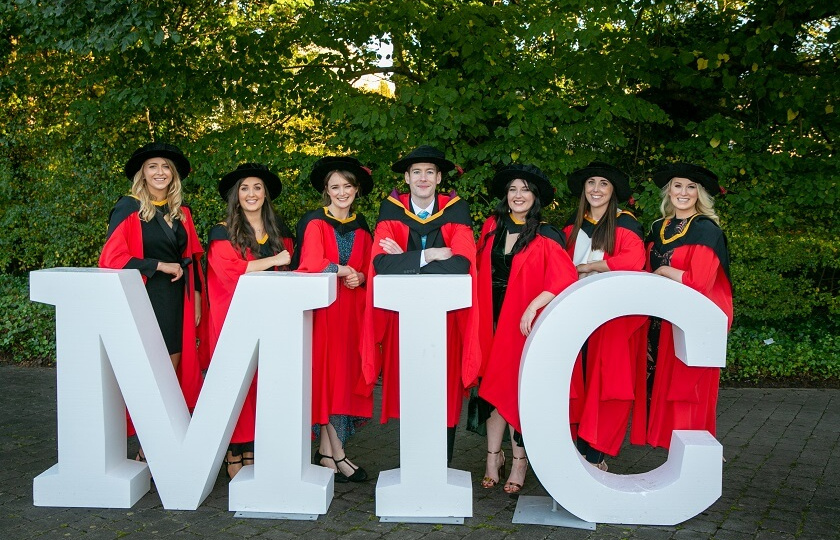
- About
- Subject Overview
- Staff
- Projects & Research
- Useful Information
- Achievements of EPISE Students & Graduates



